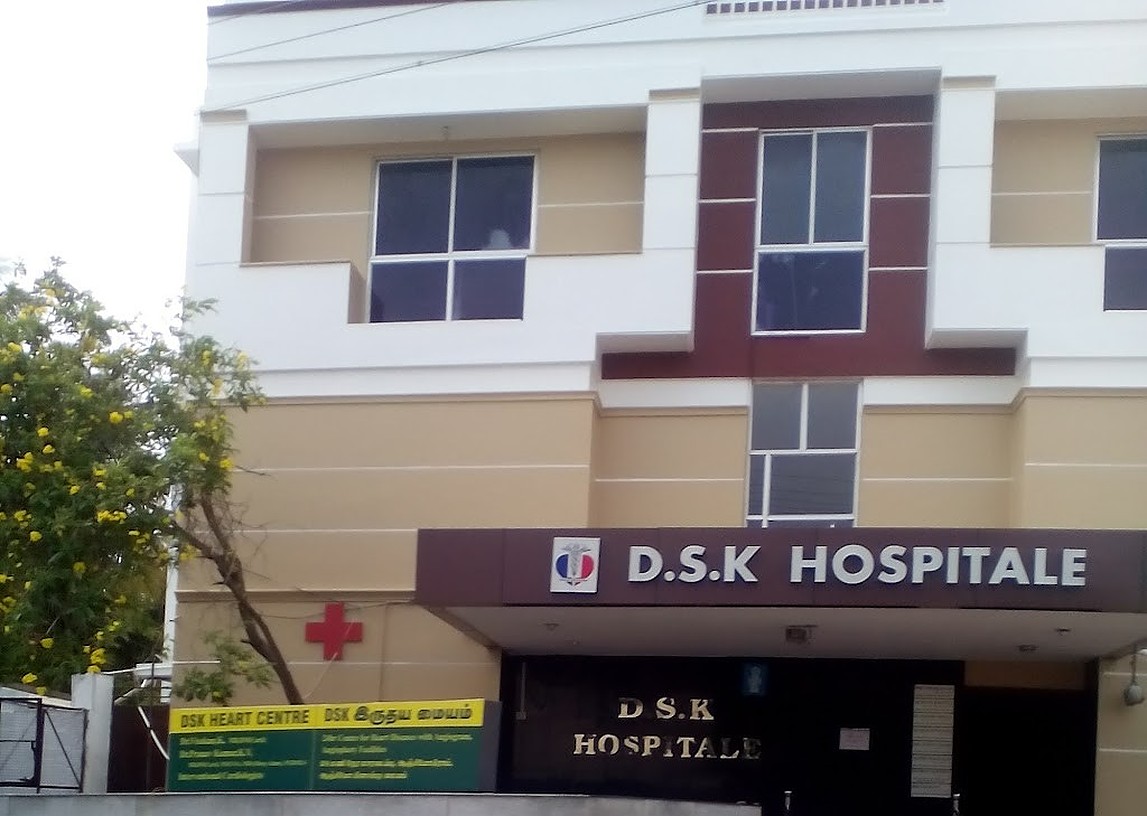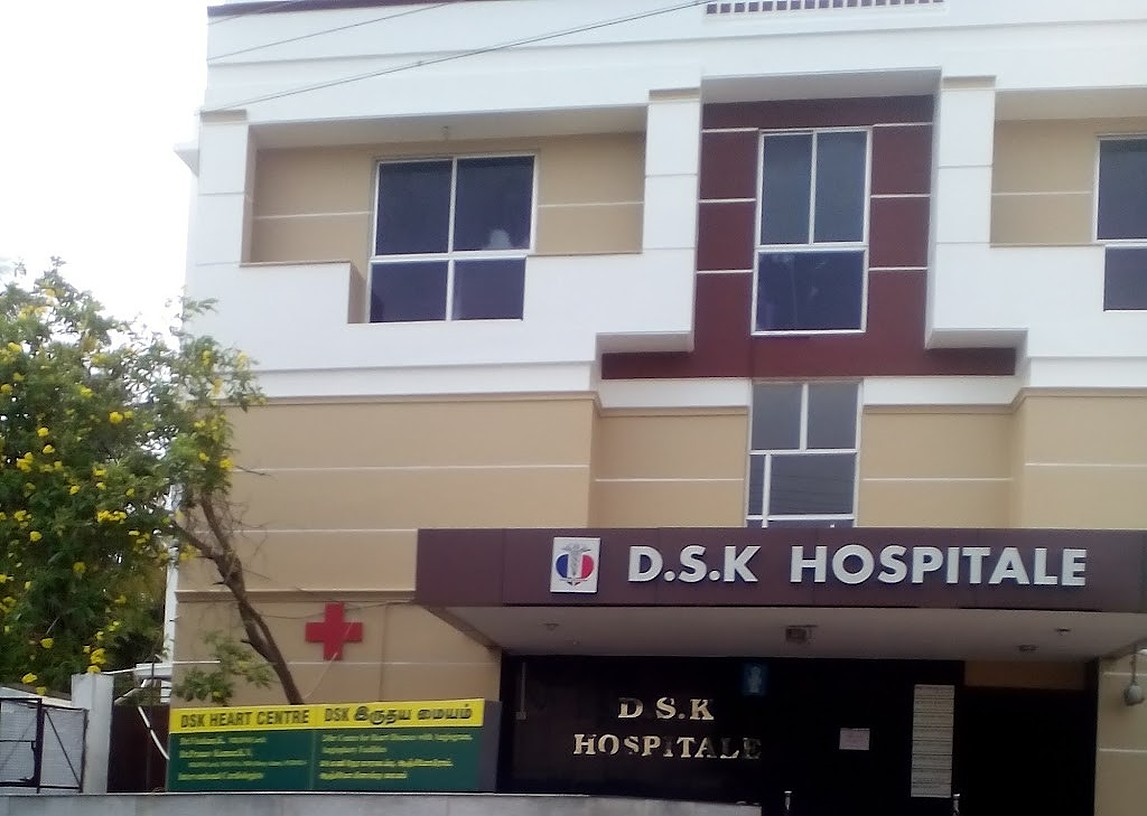DSK Hospital - Bavani Nagar, Tirupur
35
Beds
11
Beds
4
Services
2
Specialities
About DSK Hospital
Available Benefits at DSK Hospital

Specialities in DSK Hospital Tirupur
Surgeries in DSK Hospital
Gallery

Services Offered
Patient Reviews for DSK Hospital Tirupur, Bavani Nagar
Be the first one to review this Hospital
DSK Hospital Overview :
| Hospital Name | DSK Hospital |
| Specialty Type | Cardiology, General Medicine |
| Specializations count | 2 |
| Surgeries Count | 5 |
| Address | DSK Hospital,DSK Hospital, 19, Kathir Nagar, Kangayam Rd, Tirupur, Tamil Nadu - 641606. |
| Emergency Contact number | 04212421350 |
| Appointment & OPD timing | 10:00 AM - 11:30 AM, 6:00 PM - 7:30 PM (Monday to Saturday) |
| Total no. of beds | 35 |
| ICU Beds | 11 |
Appointment & OPD Timings
Submit your details to book appointment for OPD & online consultation
Location of DSK Hospital
Contact Numbers of
DSK Hospital
Hospital Number :
04212421350Ambulance Number :
04212421350Emergency Number :
04212421350FAQs
On the DSK Hospital page on our website, you will see an OPD section where the OPD consultation timings of the hospital are mentioned. This section also contains the contact details of the hospital so that you consult DSK Hospital doctors for your medical issues. You can call the mentioned number and book a preferred appointment slot at DSK Hospital.
DSK Hospital, Tirupur accepts payments in cashless and online forms. You can make your payment in cash or using online modes such as debit card, credit card, UPI and internet banking.
No, it is not mandatory. You can pay the expenses out of your own pocket in DSK Hospital.
Patients have the following rights in a hospital:
- Medical Care during Emergency
- Access Records and Reports
- Non-Discrimination
- Privacy
- Informed Consent
You should carry a Legal Photo Identification (Eg: Aadhar, Driver's License, etc), Previous Medical Reports, Insurance Card if any.
